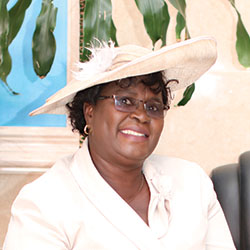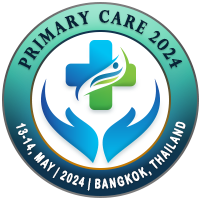
Dr. Idah Mzama
Catholic University of Malawi, MalawiBiography
Idah Mzama is a Professional Nurse from Malawi, the Southern part of Africa. She is a Lecturer and Dean of the Faculty of Nursing and Midwifery at the Catholic University of Malawi, Blantyre city, Malawi.
She has a Master’s Degree in Child Health Community Pediatrics obtained from the University of Witwatersrand, Johannesburg, South Africa. Her Bachelor’s Degree is in Health Science Education obtained from Mzuzu University, Malawi. She also holds a Diploma in Nursing and Midwifery obtained from the Malawi College of Health Sciences, Malawi. Additionally, to these, she has a certificate in Mental Health Nursing obtained from the Malawi College of Health Sciences and a Certificate in Economic Evaluation in Global Health from the University of Washington, USA.
She has 32 years of experience in the field of Health as Bedside Nurse and Midwife for 17 years and as Lecturer in Nursing and Midwifery for 15 years. Her expertise is mainly in Maternal and Child Health focusing on the prevention of illness and improving access to healthcare services for women and children in underserved communities. She has published in her field and is a peer reviewer of different reputable journals.
Research Interest
Introduction
Childhood injuries resulting from burns are a common occurrence in Malawi mainly during the winter months. This study aimed to describe the characteristics and outcomes of pediatric burn patients at an academic hospital in Blantyre, Malawi.
Methodology
This was a descriptive observational study that involved pediatric patients with burn injuries admitted to the Burns Unit, at Queen Elizabeth Central Hospital (QECH) between September 2011 to August 2012. A checklist was used to extract data from the medical records of all children with varying seriousness of burn wounds admitted on demographics, time, date, place, and site of burn injury, mode of admission to the hospital whether referred from other health facilities or not, complications, and outcomes. Data were analyzed using Statistical 9.1® software.
Results
A total of 148 pediatric burn patients were admitted to the pediatric burn unit within this study period. Of these 51% (n=75) were boys and 49% (n=73) were girls, the 2-percentage difference was not statistically significant. Boys were significantly younger than girls (p = 0.001). The median age for boys was 3 years (IQR: 2-4 years) while for girls it was 4 years (IQR: 2-6 years). Children with burn injuries referred from other primary health care facilities and admitted to the burn unit at QECH were associated with nearly 4 times the odds of death OR 3.79 (95% Confidence Interval: 1.33-10.79), p<0.001 compared to those children admitted to the burn unit straight from the point of injury.
Conclusion
The study showed that there is a positive advantage in terms of the outcome if treatment is initiated early as evidenced by the associated increase like the hood of death among patients referred from primary care facilities. There to reduce the risk of poor outcomes among pediatric burn patients, there is a need to improve the referral system to tertiary level care and increase community awareness on early attendance at burn clinics, providing appropriate first aid at home, and also education on the prevention of burns among the under-five children.
Keywords: Burn wounds, Children, Pediatric patients, Malawi, Referral system

